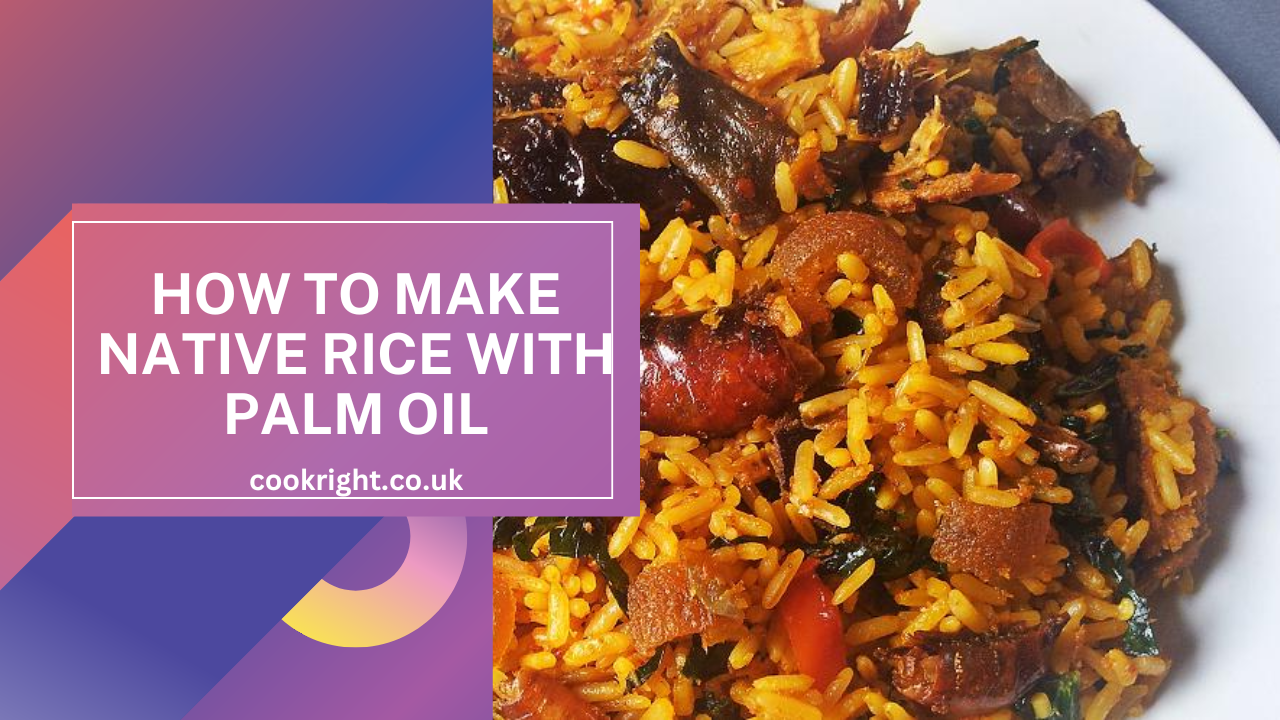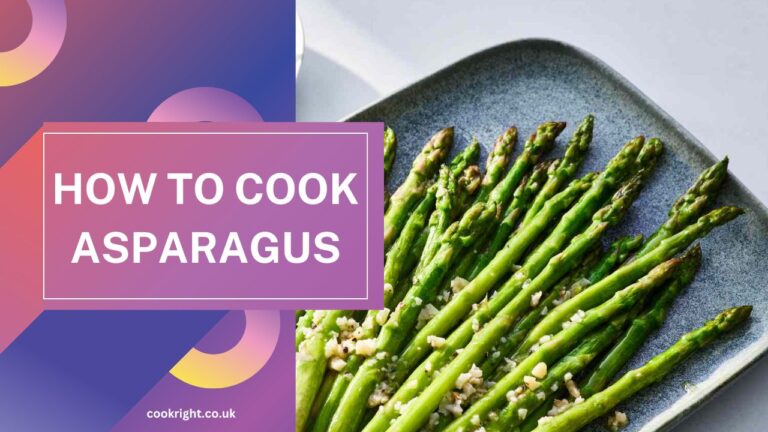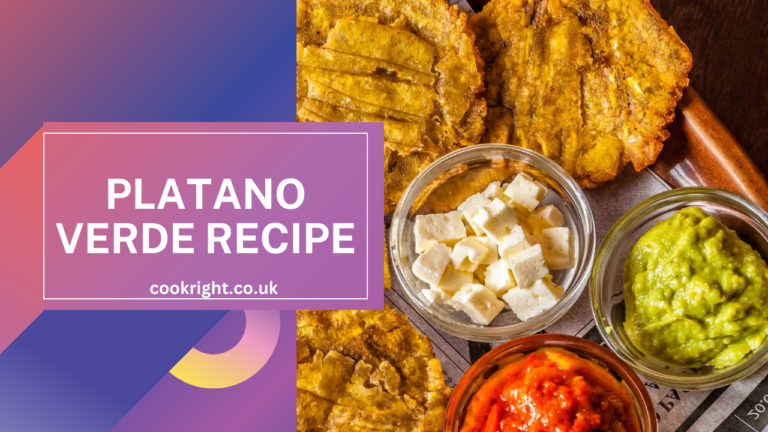Native rice, often referred to as “Palm Oil Rice” or “Concoction Rice,” is a popular Nigerian dish that brings together the earthy flavors of palm oil, aromatic spices, and a medley of ingredients that create a hearty, satisfying meal. This dish is loved across various regions in Nigeria for its simplicity and versatility, making it perfect for family dinners, festive occasions, or even a comforting solo meal. In this blog post, we’ll explore how to prepare native rice in a way that is not only delicious but also bursting with rich, traditional flavors.
Ingredients You’ll Need
To make a classic pot of native rice, gather the following ingredients:
- 2 cups of long-grain rice (preferably parboiled or local varieties like Ofada)
- ½ cup of palm oil (for authentic flavor)
- 1 medium-sized onion (chopped)
- 1-2 Scotch bonnet peppers (or to taste, finely chopped)
- 2 tablespoons of ground crayfish (adds depth of flavor)
- 1 cup of dried fish or smoked fish (deboned and shredded)
- 1 cup of diced ponmo (cow skin) or snails (optional, for added texture)
- 2 cooking spoons of chopped scent leaves (Efirin) or basil (adds a fresh, herbal note)
- 2-3 tablespoons of iru (locust beans) (optional, for an extra umami kick)
- 1 teaspoon of ground dry pepper (optional for extra heat)
- 2 stock cubes (or 1 tablespoon of bouillon powder)
- Salt to taste
- Water (as needed)
Step-by-Step Preparation
1. Prepare Your Rice
Start by parboiling the rice. Rinse the rice thoroughly under cold water to remove excess starch. Parboil the rice in a pot of boiling water for about 5-7 minutes, then drain and set it aside. This step helps to soften the rice and reduce the cooking time later on.
2. Prepare the Fish and Ponmo
If you’re using dried fish or smoked fish, ensure it’s clean, deboned, and shredded into small pieces. For ponmo, wash it thoroughly, dice into small chunks, and boil until tender. These ingredients will add texture and an authentic taste to your native rice.
3. Heat the Palm Oil
In a large pot, heat the palm oil over medium heat. Allow the oil to heat until it starts to smoke slightly; this process, known as ‘bleaching,’ will help reduce the strong flavor of the palm oil and give it a more subtle taste.
Tip: Be careful not to overheat the palm oil to avoid burning, which can impart a bitter taste.
4. Sauté the Aromatics
Add the chopped onions and Scotch bonnet peppers to the hot oil. Sauté for about 2-3 minutes until the onions are soft and translucent, and the peppers release their heat and aroma. If using iru (locust beans), add it at this stage and fry for another 1-2 minutes, stirring occasionally.
5. Add the Crayfish and Stock Cubes
Sprinkle in the ground crayfish and stock cubes, stirring well to combine. The crayfish will add a rich, smoky flavor to the dish, while the stock cubes or bouillon powder will enhance the overall taste.
6. Incorporate the Fish and Ponmo
Add the shredded fish and diced ponmo into the pot, stirring well to coat them in the oil and spices. Allow this mixture to cook for about 3-5 minutes, so the flavors meld together.
7. Add the Rice
Pour the parboiled rice into the pot, stirring gently to mix it with the other ingredients. Ensure the rice is well-coated with the seasoned oil mixture, which gives it that characteristic orange color and rich flavor.
8. Add Water
Pour enough water to just cover the surface of the rice. Stir lightly, then cover the pot with a tight-fitting lid. Reduce the heat to low, and let the rice cook gently for about 20-25 minutes. Resist the urge to stir frequently; instead, allow the steam to cook the rice evenly.
Tip: If you notice the rice drying out before it’s fully cooked, add a little more water, a small amount at a time, to avoid making it too soggy.
9. Add the Scent Leaves
Once the rice is tender and all the water has been absorbed, stir in the chopped scent leaves (or basil). The scent leaves add a fresh, aromatic touch that lifts the dish, making it not only delicious but also visually appealing.
10. Final Taste Check
Before serving, taste the rice and adjust the seasoning if necessary. Add more salt, pepper, or stock cubes as needed, and stir gently to combine.
Serving Suggestions
Native rice is best served hot and can be enjoyed on its own or with a side of fried plantains, grilled chicken, or a fresh vegetable salad. For a more indulgent experience, pair it with a chilled bottle of your favorite drink, like Zobo (hibiscus tea) or a refreshing glass of palm wine.
Tips for Perfect Native Rice
- Rice Choice: While parboiled rice is common, using local varieties like Ofada or Abakaliki rice adds an extra layer of authenticity and flavor.
- Palm Oil Quality: Use good quality palm oil for the best taste. If possible, opt for organic or locally sourced palm oil to enhance the traditional feel of the dish.
- Adjusting Heat: The heat level can be adjusted according to your preference. If you prefer milder food, reduce the amount of Scotch bonnet and dry pepper.
- Protein Options: You can substitute dried fish and ponmo with other proteins like snails, prawns, or even diced goat meat for a more hearty version.
- Vegetarian Version: For a vegetarian version, skip the fish and ponmo and increase the amount of crayfish or add chopped mushrooms for a meaty texture.
Conclusion
Native rice is not just a meal; it’s a nostalgic experience that brings the flavors of home to your plate. Whether you’re preparing it for a festive gathering or a quiet dinner, this dish promises to deliver a taste that’s both comforting and satisfying. Its rich blend of palm oil, spices, and traditional ingredients makes it a true representation of Nigerian culinary heritage. So go ahead, gather your ingredients, and get cooking—your kitchen is about to be filled with the irresistible aroma of native rice!








